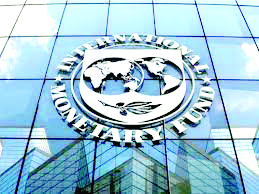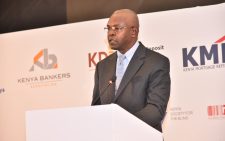Africa can break free from cycle of dependency

Treasury Cabinet Secretary John Mbadi’s experience at the World Bank and IMF summit in Washington, DC, brings to light an unsettling reality: African nations are too often cast in a subordinate position on the global financial stage.
Mbadi described a scene where African leaders, including Kenya’s delegation, queued in a corridor, called one by one into short meetings. This scene, while not meant to be disrespectful, came across as demeaning.
This moment of frustration should serve as a stark reminder that Kenya, and Africa as a whole, must take urgent steps to strengthen their economic autonomy. Africa’s dependence on foreign aid, loans, and grants not only erodes its bargaining power but also curtails its dignity and potential. We must do better as a continent to sit pretty at the high table.
To break free from these shenanigans, African countries must confront the devil that hinders growth including corruption, institute sound fiscal policies, and create a business-friendly environment, so as to move away from a “begging mentality” that keeps them at the mercy of institutions like the IMF and the World Bank.
Reliance on external loans comes at a significant cost because they come with stringent conditions that restrict economic growth and weigh down already struggling economies with heavy debt burdens.
While the IMF and the World Bank aim to support economic stability, their solutions often treat symptoms rather than the root problems of financial instability: entrenched corruption, fiscal mismanagement, and weak governance structures.
With a well-managed and efficient tax collection system, and if Kenya can only manage to curb corruption, the country can independently raise the very funds it seeks from international lenders.
Mbadi wagers that Kenya could collect an additional Sh400 billion in taxes if the Kenya Revenue Authority tightened its systems, in stark contrast to the recent Sh78 billion loan from the IMF, which signals the potential for self-reliance if the right changes are made.
It is depressing that corruption is the most pressing obstacle in this path toward self-sufficiency. Africa loses an estimated $50 billion annually through illicit financial flows — money that could otherwise be used to build infrastructure, provide healthcare, and stimulate economic growth.
Stamping out corruption requires more than just words; it requires systemic reforms, empowered and independent anti-corruption agencies, and strict enforcement of penalties for those who misuse public funds.
Sound fiscal management is another crucial component. This involves conducting regular audits, eliminating wasteful spending, and ensuring that public funds are directed towards high-impact projects that benefit citizens directly. Kenya needs to broaden the tax base, close loopholes, and reduce tax evasion, particularly in previously untaxed sectors.
As President Ruto had promised: by building a robust revenue collection system, Kenya can reduce dependence on foreign loans, allowing them to pursue independent policies that better serve their people.
As it stands, Kenya’s economic potential is immense, yet it remains largely untapped due to the high cost of doing business, convoluted regulatory frameworks, and inconsistent policies that discourage both local and foreign investors.
In Kenya, the high costs and complexity of compliance push many small businesses into the informal sector, depriving the country of tax revenue and stunting economic growth. The need to simplify regulations, reduce compliance fees, and provide better support to entrepreneurs can empower local businesses to thrive, create jobs, and drive economic development.
Dependency on foreign aid cultivates a “begging mentality” that undermines Africa’s global standing. It’s demeaning to rely on handouts and loans, particularly when countries possess the resources and talent needed to build self-sufficient economies.
The writer is People Daily’s Business Editor















